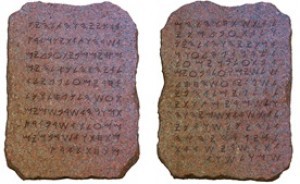The Fourth Commandment

Question: Is it permiited to work in extraordinary circumstances?
Answer: In the case of extreme danger, work is permitted. For example war was allowed in the ancient kingdom of Israel and nowadays a defensive war is allowed. Work is also allowed in a case of emergency such as a flood, fire, or in the case of a seriously ill person.
Our teachers used to say: a soul (life) in danger takes precedence over the Saturday - סכּנת נפשׁ דּוֹחה את השּׁבּת Sakanat nefesh ddokha et haShabbat.
Question: What meaning did our teachers of faith give to the observance of Saturday?
Answer: How important is the observance of Saturday in our Law? The following statement is from our teachers:
The commandment of Saturday is equal to all the other commandments of the Law - מצות שּׁבּת שׁקוּלה כּנגד כּל המצוֹת Mitzvat Shabbat shekulah keneged kol hamitzvot.
Question: How should Saturday be celebrated?
Answer: Shabbat - Saturday should be celebrated in following way: it is necessary to say the special Saturday prayers, the Shabbat prayers תּפלת שּׁבּת Tfilat Shabbat are longer than the usual prayers. It is required to read a portion of the Torah - פּרשׁה parasha, and one chapter of the Prophets - הפטרה haftara. It is necessary to serve festive food, better food than on a normal working day and it is also necessary to wear feastive clothing.
Question: What other obligations arise from this commandment?
Answer: The celebration of other feasts commanded by Holy Scripture is derived from this commandment. The words of the prophet Isaiah about Shabbat -
If thou turn away thy foot because of the Shabbat, from pursuing thy business on My holy day; and call the Shabbat a delight, and the holy of יהוה honorable; and shalt honor it, not doing thy wonted ways, nor pursuing thy business, nor speaking thereof; then shalt thou delight thyself in יהוה, and I will make thee to ride upon the high places of the earth, and I will feed thee with the heritage of Jacob thy father; for the mouth of יהוה hath spoken it. (Isaiah 58: 13-14)